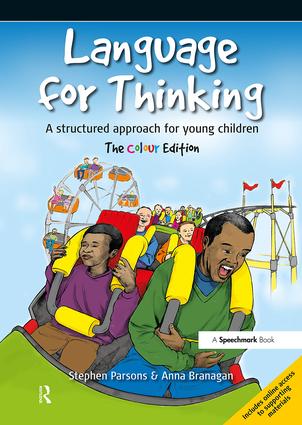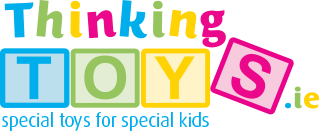
Language for Thinking
While most children develop verbal reasoning skills with relative ease, others find it more challenging. Verbal reasoning is particularly difficult for children who are recognised as having delayed language skills, specific language impairment, Autistic Spectrum Disorder (including Asperger's Syndrome), pragmatic language impairment or moderate learning difficulties. Children with less obvious oral language difficulties may begin to struggle when they start to read.
This photocopiable resource provides a clear structure to assist teachers, SENCOs, learning support assistants and speech language therapists in developing children's language from the concrete to the abstract. It is based on fifty picture and verbal scenarios that can be used flexibly with a wide range of ages and abilities.
- Quick, practical and easy to use in the classroom, this programme can be used with individual children, in small groups or can form the basis of a literacy lesson or speech language therapy session.
- Question sheets are carefully structured to promote children's development of inference, verbal reasoning and thinking skills.
- The three parallel assessments of spoken and written language can be used to assess each child's starting level and then to monitor progress; score forms and worksheets for each lesson are included.
The book is particularly useful for children who are recognised as having delayed language skills, specific language impairment, Autism Spectrum Disorder (including Asperger's Syndrome), pragmatic language impairment or moderate learning difficulties.
Age: 4-12+
Chapters
- Introduction
- How to use this resource
- Assessment pictures record sheets
- Assessment texts
- Scenarios
- Scenario texts
- Tracker sheets
- Worksheets
- Question symbols
- Frequently asked questions
- Assessment sample answers
- Assessment scoring guides
- Bibliography
All Books ASD Autism Autism Spectrum Disorder Book Books Books & Fun Decks Books Books & Fun Decks Classroom Activities & Games Communication Language & Auditory Skills Language Skills
